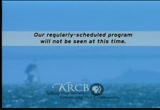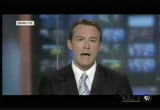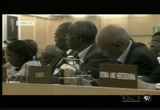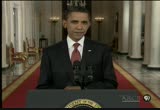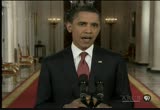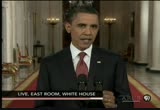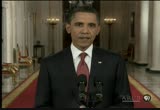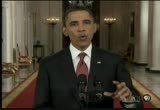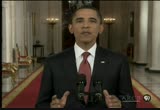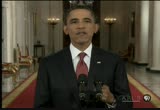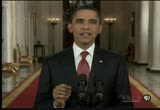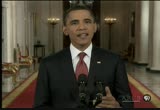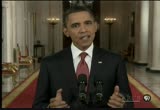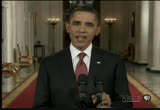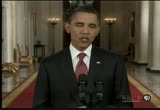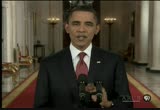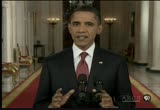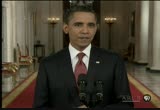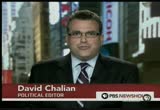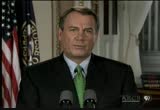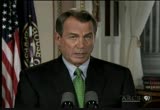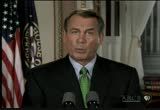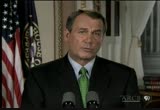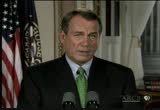tv PBS News Hour PBS July 25, 2011 5:30pm-6:30pm PDT
5:30 pm
>> you are watching "the journal the the." >> here are the headlines this hour. he says he did it, but pleads not guilty. mourners gathered in oslo. and the united nations say more needs to be done to fight hunger in the horn of africa. the world barely got a glimpse of the man who says he committed the worst massacre norway has seen in more than 60 years.
5:31 pm
anders behring breivik appeared in an oslo court on monday, but the judge said no to cameras. behind closed doors, breivikk admitted to the bombing and the killing of scores of people. he will spend the next four weeks in solitary confinement. >> anders behring breivik was photographed leaving the courthouse. he did not look distraught, even after acknowledging he was responsible for the oslo bombing and massacre. it is one of the few photos of norway's most infamous man. reporters waited for hours. the hearing was held behind closed doors. afterwards, the judge disclosed what breivik had said at the hearing. >> while the accused has acknowledged the circumstances, he has not pleaded guilty. the accused believes he needed to carry out these acts in order
5:32 pm
to save norway and western europe from, and i quote, cultural marxism and an islamic takeover. >> police are searching the form that breivik rented and are investigating whether he had accomplished this -- accomplices. earlier, he said he had acted alone. the police say they cannot rule out that others were involved in the attacks on friday. breivik is due to undergo a psychiatric assessment. he has been remanded to custody for eight weeks, with the first four in solitary confinement. >> norwegian police have lowered the overall death toll from 93 to 76. they say the mistakes caused by confusion surrounding events on the island. that will do little to consult a nation in grief.
5:33 pm
in a show of solidarity for those killed, more than 100,000 people flooded the streets of the norwegian capital. similar rallies are being held across the country. on monday, norwegians also observed a minute of silence for the victims. >> joining us live from oslo is our reporter. good evening. >> good evening. >> it appears that all of norway is united in this tragedy right now. >> it is a tremendous outpouring of people standing beside each other, comforting each other, and taking a stand against what was done onriday. he posted his manifesto on line. >> the foreign minister of norway today and said he wants norwegian society to remain free and liberal. but he also said there would be
5:34 pm
a pre-attack norway and a post- attack norway. how do you interpret that? >> something to remind us that we can never be naive. we can never believe that further things will not happen in our part of the world. that image has been shattered by what has happened. people are still in the united and are taking a stand. we are talking to each other. there is a very close of atmosphere in the country. there are two sides to this. he said today he has not been working alone. what do you know about that?
5:35 pm
>> what we know is what the judge and the police have said. there will be a press conference later this afternoon. the police do not really believe there are two cells. >> 21 years is the maximum sentence breivik could get by this. much of the world is shocked by this, given the severity of the crime. >> it is true 21 years is the maximum for any crime in norway. but it is also true that if your sanity or stable less -- if it is thought you would be a menace to society, that can be
5:36 pm
extended. that could happen in this case. it depends on what the prosecution rules whe the case is decided. >> thank you very much. the united nations has called for massive action to save millions of people threatened with starvation in the horn of africa. at talks in rome, delegates agreed to begin airlifting more food, starting on tuesday. called million people are starving in somalia, ethiopia, and kenya. tens of thousands are already dead. >> she is starving. unless she gets help very soon, she will die. she is also going to die because of a lack of vitamin a. the famine in east africa is hitting babies and children the hardest. more than 2 million are already suffering from severe malnutrition. at the emergency meeting in rome, aid organizations issued
5:37 pm
an appeal for concerted action. delay means more unnecessary deaths. >> we have to save lives and protect people's means of subsistence. we must respond now to present the -- prevent the state of emergency from getting worse. the combined effects of drought, inflation, and conflicts have created a disastrous situation that demands a massive and urgent international aid effort. >> aid organizations say the 700 million euros funding gap needs to be filled in the coming months to avert a major disaster. long term, farmers need support to develop sustainable practices. the world bank has pledged to help victims of the drought. will be a breach the people in need?
5:38 pm
the al shabab islamist militia blocked aid from many of the areas of somalia it controls. >> violence in egypt, at this time after a cairo court again postponed the trial of the former in egyptian interior minister. the judge said he will now appear on august 3, to stand trial with ousted president hosni mubarak. the news infuriated demonstrators, who vented their anger at the armored vehicle carrying the men back to prison. the former minister is being charged for his role in killing protesters during the arab spring. he has already been sentenced to 12 years for corruption. the made at a new york hotel who has accused former imf bossed dominique strauss-kahn of trying to rape her has given her first interview. she told "newsweek" that she had been telling the truth when she said he forced her to perform
5:39 pm
oral sex. for his part, dominique strauss- kahn has denied the charges. his lawyers say the woman is trying to exert pressure on prosecutors. her credibility was called into question when they revealed she had told authorities several lies. monica is here to talk about greek that again. >> the eurozone debt crisis is not going to go away anytime soon. now credit-rating agency moody's has downgraded greece's credit standing again. it says greece will almost certainly default. the people of greece have been granted a breather by the bailout -- bailout plan approved last week. moody's also says it is virtually certain the country will experience a selective default once private banks and other investors begin to roll over their greek bonds for lower interest rates and longer
5:40 pm
maturity. . the bank of ireland has avoided naturalization. private investors have agreed to buy over a billion shares in the bank of ireland to keep the largest lender out of majority state ownership. dublin currently owns 36% of the bank, but has been talking to investors about reducing its stake from 16% to 32%. they said this was tangible proof of growing confidence in the future prospects of the bank of ireland and the irish economy. global shares slipped on monday after moody's downgraded great that again, and also amidst a growing concern of a u.s. default. this report is from today's trading in frankfurt. >> at the stock market, the attention shifted from one debt crisis to another. this put pressure on the markets
5:41 pm
before recovering again. gold is viewed as a safe haven and the price is at record levels. shares from the financial sector are suffering most, also because of the downgrade of greek banks. moody's see significant risk in greece. >> let us look at the market numbers. in frankfurt, the benchmark dax closed 1/4 of a percent higher. the eurostoxx 50 closed 1% lower. the dow jones industrials are at 12,539. it seems the success of apple products like the iphone and mac have proven too tempting for carter tatars. chinese authorities have closed
5:42 pm
two stores purporting to be official applet -- apple outlets. the apple brand in stores is apparently so convincing that some of the staff thought they were working for the company. >> in this southwestern city alone, chinese authorities found five branded apple's stores to be operating without authorization from the company. city officials ordered two of the stores closed because they did not have business licenses. chinese authorities said all of the shops were selling genuine apple products. even so, experts fear the apple brand could be damaged. >> it can hurt, especially if people cannot tell the difference between the real thing and the copy. when people have a bad experience, they might blame the brand. >> apple has just four official stores across all of china, and none in this city. china is the fastest-growing
5:43 pm
market for the iphone. one analyst expects sales in china could triple in 2012. >> the trial of the last major war crimes suspect in the balkan conflict has opened in the hague.e. goran hadzic let serbian forces during the war in croatia in the 1990's. he has been charged with 14 counts of war crimes and crimes against humanity. the european union has insisted that serbia and arrest all wanted war crimes suspects before the country is granted candidate status for membership. >> goran hadzic's appearance is the end of the 18 year hunt for those involved in war crimes in the balkan conflict. he is the last of 161 suspect to go on trial. >> it sends a strong signal to the world that international
5:44 pm
criminal justice is achievable. his arrest confirms the extraordinary success story that is the icty. the era of impunity is over. >> goran hadzic declined to enter a plea before the tribunal. the former warehouse worker became leader of the self- proclaimed republic of serbia krajina during the 1990's. he faces charges of murdering hundreds of croats and expelling tens of thousands more. this includes the killing 267 hospital patients in vukovar. he went into hiding to avoid being prosecuted. u.n. investigators found him, proving he was being protected by serbian security forces. he was transferred from belgrade to the hague on friday. of gunning down journalist hrant dink was sentenced to prison.
5:45 pm
he was shot and killed outside his august -- his office in 2007. he was the editor in chief of a turkish-american newspaper. he received death threats for describing the killings of armenians in theurkish empire as genocide. [unintelligible] after trashing paraguay in sunday's final. poor guy were clearly outclassed in buenos aires. it is uruguay's victory. they now face their archrivals, argentina. >> a dazzling performance by uruguay. a devastating left-footed shot by the striker put them ahead in the 12th minute. just before halftime, a star
5:46 pm
player found the net for the first time in a tournament to make it 2-0. paraguay reached the final with five draws and two penalty shootout wins. they created their first chance after halftime with nelson velez. in the last minute, the second goal with a counterattack, to clinch the 3-0 victory. >> this is a historic result. it made us proud. but we should not let ourselves be carried away. otherwise we will quickly lose that respect. >> europe why has now won the -- ?uruguay has now won for the 15h time, sparking celebrations in the capital. that secures a spot for the cup in 2013 in brazil. >> stay with us. >> looking at deaths on both
5:49 pm
5:50 pm
been increased in time since richard nixon was elected prison in 1969. the u.s. has increased the debt ceiling 53 times. this would be the first time it would not be achieved in time. what the effect is, nobody knows for certain. i think the effect shows not so much in the losses we see in the monday session but in the trading. traders are very cautious, and nobody is ready to place any bets in this environment. >> the debt crisis in the eurozone is still a major topic of discussion. the efforts to help greece do not appear to be calming markets. >> what is really likely, at least in the short term, is there will likely be some kind of a default in greece. that is why u.s. rating agency moody's cut grease that again by three notches -- greek debt
5:51 pm
again by three notches. you would guess the dollar would be under pressure, but it is gaining in comparison to the euro. it shows how confusing all the debt issues are on the other side of the atlantic. >> what can we expect in the coming days? >> basically, the debt issues will remain in front of investors' minds. on top of it, we will get dozens of earnings reports. we will get earnings reports from some industrial heavyweights and will see if earnings season continues to be as good as we have seen it in the past couple of days. blue chips have been up last week by almost 1.5%, due to rather strong earnings from companies like apple and ibm. we will see if those bread and butter companies coming out with their numbers this week can repeat what we have seen in the past couple of days. >> thank you very much.
5:52 pm
the role of the ratings agencies is one of the most contentious factors in the eurozone debt crisis. many politicians feel the u.s.- based agencies have too much power. and there are numerous instances when they have failed to warn of impending crises. even so, global investors have long depended on them for by the information. >> ratings agencies were for started in the united states 150 years ago. railroad companies needed huge investments in order to expand. men such as mr. poor and mr. moody began analyzing data for investors. mr. fitch also got into the business earlier. together, the firm's fate founded are known as the big three, and command a 93% share of the market. they look at the books of businesses and countries and judge how able they are to pay
5:53 pm
back financial observations. in a complex internet -- international economy, this information is vital to investors. when the bretton woods system of monetary management fell apart in the 1970's, the role of ratings agencies became even more important. the u.s. government gave them the task of assuring financial reliability. the european union has also require banks to increase capital in line with risk exposure. that risk is measured by the ratings agencies. >> the influence of ratings agencies lies on the one hand in the way their evaluation system has been incorporated into legislation. on the other hand, many business contracts are tied to the marks of the ratings agencies. that means certain private investors will only invest if there is a certain rating.
5:54 pm
>> one such example is the insurance giant allianz, which relies on ratings agencies to invest huge amounts of capital. but that system historically failed on a massive scale and when the agencies gave some prime mortgage bundles high ratings, triggering the financial crisis in 2008. not only companies but countries such as portugal paper ratings agencies for their assessments. potential conflict of interest is another weakness in the current system. but few would argue portugal's downgrading to junk status is any sign of f voritism. >> traditionally, dusseldorf has been germany's fashion capital. but in recent years it has lost some of its fire. that could be changing. there is a fashion trade fair that ends today. we stopped by before they closed the door. >> those who come to the women's wear trade fair are mainly buyers.
5:55 pm
cpd dusseldorf has been outdone by berlin's fashion week. for a while, visitor numbers dropped year by year. but it still offers a tantalizing glimpse of the fashions to come. >> basically, fashion is going through an upheaval. during the economic crisis, people were comforted by more traditional styles. that is changing now and fashion is reinventing itself, trying to be more revolutionary. there are playful floral and tropical designs. you can see bananas, palm trees, giant orchids. it is fabulous. >> and organizers say they have managed to shake off the slightly faded image of the cpd but attracting hot young designers. visitor numbers have stabilized. a bit of glamour never did any harm, especially not at the fashion fair in duesseldorf.
5:56 pm
>> the trade fair is certainly one of the most important for germany's fashion industry. it is where department store buyers select the next season's collections. apparently, they are ordering just what the customers want. >> 59 billion euros. that is how much people in germany spend on clothing last year, a 3% rise since 2009. large retailers in prime city locations posted the biggest sales gains. germans not only bought more clothing, but spend more on each item. on average, women spend around 850 euros on clothing last year. men around half that amount. >> that is all from the business desk at this hour. do stay with us.
6:00 pm
captioning sponsored by macneil/lehrer productions >> brown: it's a time of high brinckmanship and high stakes in washington over the debt talks. good evening, i'm jeffrey brown. >> and i'm gwen ifill. in just a few moments president barack obama will address the nation from the east room of the white house it will be the 7th time he has done so since taking office. >> brown: front and center tonight, the administration's charged and tense negotiations with congressional republicans over the country's 14 trillion dollar debt ceiling, the amount the federal government is allowed to borrow with a looming deadline of august 2nd, and the threat of a potential first ever default. we'll carry the president's
6:01 pm
speech in its entirety as well as a response that will follow from speaker of the house john boehner. his direct negotiations with the president broke down last friday. we have reached this point after weeks of face-to-face meetings at the white house and the capitol, with many hints of a deal, then no deal, deal and then again where we are at the moment, no deal. president obama is expected tonight to warn again, even more forcefully, about the potential damage to the nation of a credit ratings downgrade and a national default. and to outline his version of compromise through a mix of spending cuts and ref new increases. the president is approaching now. here, president of the united states. >> good evening. tonight i want to talk about the debate we've been having in washington over the national debt. the debate that directly affects the lives of all americans. for the last decade we've
6:02 pm
spent more money than we take in. in the year 2000 the government had a budget surplus. but instead of using it to pay off our debt, the money was spent on trillions of dollars in new tax cuts, while two wars and an expensive prescription drug program were simply added to our nation's credit card. as a result, the deficit was on track to top $1 trillion the year i took office. to make matters worse, the recession meant that there was less money coming in and required us to spend even more. on tax cuts for middle-class families to spur the economy, on unemployment insurance, on aid to states so we could prevent more teachers and firefighters and police officers from being laid off. these emergency steps also added to the deficit. now every family knows a little credit-card debt is manageable. but if we stay on the current path, our growing debt could cost us jobs and
6:03 pm
do serious damage to the economy. more of our tax dollars will go toward paying off the interest on our loans. businesses will be less likely to open up shop and hire workers in a country that can't balance its books. interest rate kos climb for every one without borrows money. the homeowner with a mortgage, the student with a college loan. the corner store that wants to expand. and we won't have enough money to make job creating investments in things like education and infrastructure, or pay for vital programs like medicare and medicaid. because neither party is blameless for the decisions that lead to this problem, both parties have a responsibility to solve it. and over the last several months that's what we've been trying to do. i won't bother you with the details of every plan or proposal. but basically the debate has centered around two different approaches. the first approach says let's live within our means by making serious, historic
6:04 pm
cuts in government spending. let's cut domestic spending to the lowest level it's been since dwight eisenhower was president. let's cut defense spending at the pentagon by hundreds of billions of dollars. let's cut out waste and fraud in health-care programs like medicare. and at the same time let's make modest adjustments so that medicare is still there for future generations. finally, let's ask the wealthiest americans and biggest corporations to give up some of their brakes in the tax code and special deductions. this balanced approach asks everyone to give a little without requiring anyone to sacrifice too much. it would reduce the deficit by around 4 trillion dollars and put us on a path to pay down our debt. and the cuts wouldn't happen so abruptly that they would be a drag on our economy, or prevent us from helping small businesses and middle-class families get back on their feet right now.
6:05 pm
this approach is also bipartisan. while many in my own party aren't happy with the painful cuts it makes, enough will be willing to accept them if the burden is fairly shared. while republicans might like to see deeper cuts and no revenue at all, there are many in the senate who have said yes, i'm willing to put politics aside and consider this approach because i care about solving the problem. and to his credit this is the kind of approach the republican speaker of the house john boehner was working on with me over the last several weeks. the only reason this balanced approach isn't on its way to becoming law right now is because a significant number of republicans in congress are insisting on a different approach, a cuts only approach. an approach that doesn't ask the wealthiest americans or biggest corporations to contribute anything at all. and because nothing is asked of those at the top of the income scale, such an
6:06 pm
approach would close the deficit only with more severe cuts to programs we all care about. cuts that place a greater burden on working families. so the debate right now isn't about whether we need to make tough choices. democrats and republicans agree on the amount of deficit reduction we need. the debate is about how it should be done. most americans, regardless of political party, don't understand how we can ask a senior citizen to pay more for her medicare before we ask a corporate jet owner or the oil companies to give up tax breaks that other companies don't get. how can we ask a student who pay-- to pay more for college before we ask hedge fund managers to stop paying taxes at a lower rate than their secretaries. how request we slash funding for education and clean energy before we ask people like me to give up tax breaks we don't need and didn't ask for. that's not right. it's not fair.
6:07 pm
we all want a government that lives within its means but there are still things we need to pay for as a country. things like new roads and bridges, weather satellites and food inspection. services to veterans and medical research. and keep in mind that under a balanced approach, the 98 percent of americans who make under $250,000 would see no tax increases at all. none. in fact, i want to extend the payroll tax cut for working families. what we're talking about under a balanced approach is asking americans whose incomes have gone up the most over the last decade, millionaires and billionaires to share in the sacrifice everyone else has to make. and i think these patriotic americans are willing to pitch in. in fact, over the last few decades they've pitched in every time we passed a bipartisan deal to reduce the deficit. the first time a deal was
6:08 pm
passed a predecessor of mine made the case for a balanced approach by saying this: would you rather reduce deficits and interest rates by raising revenue from those who are not now paying their fair share, or would you rather accept larger budget deficits, higher interest rates and higher unemployment. and i think i know your answer. those words were spoken by ronald reagan. but today many republicans in the house refuse to consider this kind of balanced approach. an approach that was pursued not only by president reagan but by the first president bush, by president clinton, by myself and by many democrats and republicans in the united states senate. so we're left with a stalemate. now what makes today's stalemate so dangerous is that it has been tied to something known as the debt ceiling. a term that most people outside of washington have probably never heard of before.
6:09 pm
understand raising the debt ceiling does not allow congress to spend more money. it simply gives our country the ability to pay the bills that congress has already racked up. in the past raising the debt ceiling was routine. since the 1950s congress has always passed it. and every president has signed it. president reagan did it 18 times. george w. bush did it seven times. and we have to do it by next tuesday, august 2nd, or else we won't be able to pay all of our bills. unfortunately for the past several weeks republican house members have essentially said that the only way they'll vote to prevent america's first ever default is if the rest of us agree to their deep spending cuts only approach. if that happens and we default, we would not have enough money to pay all of our bills. bills it that include monthly social security checks, veterans' benefits
6:10 pm
and the government contracts we've signed with thousands of businesses. for the first time in history our country's aaa credit rating would be downgraded leaving investors around the world to wonder whether the united states is still a good bet. interest rates would skyrocket on credit cards, on mortgages and on car loans. which amounts to a huge tax hike on the american people. we would risk sparking a deep economic crisis. this one caused almost entirely by washington. so defaulting on our obligations is a reckless and irresponsible outcome to this debate. and the republican leaders say that they agree we must avoid default. but the new approach that speaker boehner unveiled today which would temporarily extend the debt ceiling in exchange for spending cuts would force us to once again face the threat of default just six months from now.
6:11 pm
in other words, it doesn't solve the problem. first of all, a six month extension of the debt ceiling might not be enough to avoid a credit downgrade and the higher interest rates that all americans would have to pay as a result. we know what we have to do to reduce our deficits. there's no point in putting the economy at risk by kicking the can further down the road. but there's an even greater danger to this approach. based on what we've seen these past few weeks, we know what to expect six months from now. the house of representatives will once again refuse to prevent default unless the rest of us accept their cuts-only approach. again they will refuse to ask the wealthiest americans to give up their tax cuts or deductions. again, they will demand harsh cuts to programs like medicare. and once again the economy will be held captive unless they get their way. this is no way to run the
6:12 pm
greatest country on earth. it's a dangerous game that we have never played before. and we can't afford to play it now. not when the jobs and livelihoods of so many families are at stake. we can't allow the american people to become collateral damage to washington's political warfare. and congress now has 1 week left to act. and they're still pass forward. the senate has introduced a plan to avoid default which makes a down payment on deficit reduction and ensures that we don't have to go through this again in six months. i think that's a much better approach. although serious deficit reduction would still require does to tackle the tough challenges 6 entitlement and tax reform. either way, i've told leaders of both parties that they must come up with a fair compromise in the next few days that can pass both houses of congress. and a compromise that i can sign. i'm confident we can reach
6:13 pm
this compromise. despite our disagreements, republican leaders and i have found common ground before. and i believe that enough members of both parties will ultimately put politics aside and help us make progress. now i realize that a lot of the new members of congress and i don't see eye-to-eye on many issues. but we were each elected by some of the same americans for some of the same reasons. yes, many want government to start living within its means, and many are fed up with a system in which the deck seems stacked against middle class americans in favor of the wealthiest few. but you know what people are fed up with most of all? they're fed up with a town where compromise has become a dirty word. they work all day long, many of them scraping by just to put food on the table. and when these americans come home at night, bone tired, and turn on the news, all they see is the same
6:14 pm
partisan three-ring circus here in washington. they see leaders who can't seem to come together and do what it takes to make life just a little bit better for ode americans. they're offended by that. and they should be. the american people may have voted for divided government, but they didn't vote for a dysfunctional government. so i'm asking you all to make your voice heard. if you want a balanced approach to reducing the deficit, let your member of congress know. if you believe we can solve this problem through compromise, send that message. america after all has always been a grand experiment in compromise. as a democracy made up of every race and religion, where every belief and point of view is welcomed, we have put to the test time and again the proposition at the heart of our founding, that out of many, we are one.
6:15 pm
we've engaged in fierst and passionate debates about the issues of the day. but from slavery to war, from civil liberties to questions of economic justice, we have tried to live by the words that jefferson once wrote, every man cannot have his way in all things. without this mutual disposition, we are disjointed individuals, but not a society. history is scattered with the stories of those who held fast to rigid ideologies and refused to listen to those who disagreed. but those are not the americans we remember. we remember the americans who put country above self and set personal grievances aside for the greater good. we remember the americans who held this country together during its most difficult hours, who put aside pride and party to form a more perfect union. that's who we remember. that's who we need to be
6:16 pm
right now. the entire world is watching. so let's seize this moment to show why the united states of america is still the greatest nation on earth. not just because we can still keep our word and meet our obligations, but because we can still come together as one nation. thank you, god bless you. and may god bless the united states of america. >> ifill: that's president obama speaking from the east room of the white house. we will hear shortly from house speaker boehner but first insight from our political insider. david, it was interesting to hear the president use terms like dangerous game, collateral damage, political warfare, partisan three-ring circus. he was speaking over the heads of washington and into american living rooms. >> there's no doubt about it. in fact, i think, gwen, what we saw here was a harvard trained lawyer making his
6:17 pm
closing argument in this battle, and trying to teach the american people what the stakes are here. even including that urging of sort of calling your members of congress. if you are's somebody who gets a social security check or you are a veteran that et gos veteran benefits the president was trying to speak to you, asking you to get engaged and call your member of congress to support his point of view. he lays out, his plan is very bald. i'm sure what we will hear from speaker boehner doesn't describe the obama plan that way. >> ifill: how unusual is it to hear a president come and talk about what is basically a legislative dispute in a prime time national address? >> i do think that part of the words you were describing earlier get at exactly this point it is historic. it's not that often we see a presidential address followed by a response by the opposition party if it's not state of the union night. but we are a week away from this deadline. and so the stakes are so high, gwen, the president didn't want to lose this opportunity. he feels he's been sort of winning the message war here trying to keep that upper
6:18 pm
hand. and he just didn't want to let any more time go by without, again, speaking to the american people and trying to make this argument. >> ifill: briefly today we saw new proposals from nor reid and speaker boehner but we haven't really heard anything more from the white house except this speech tonight. are they closer or farther apart? >> well, i think you heard in in the speech. the president declared it still a stalemate and that is where we stand at this day. those two plans would be impossible to sort of bridge together in a conference on capitol hill. they're still quite far apart. >> ifill: and what is it going to take to bring them bag together, another meeting we think? we're going to be moving to the white house? >> i think both chambers are going to go through this process now. >> ifill: here is speaker john boehner. >> speaker of the whole house, of the members of both parties that you elect. these are difficult times in the life of our nation. millions are looking for work and have been for some time. and this going on in washington is a big part of the reason why. before i served in congress i ran a small business in
6:19 pm
ohio. i was amazed at how different washington d.c. operated than every other business in america. where most american businesses make the hard choices to pay their bills, live within their means. in washington, more spending and more debt is business as usual. well, i've got news for washington, those days are over. president obama came to congress in january and requested businesses as usual. he had ner routine increase in the national debt, but we in the house said not so fast. here was a president asking for the largest debt increase in american history on the heels of the largest spending binge in american history. and here's what we got for that massive spending binge. a new health-care bill that most americans never asked for. a stimulus bill that's more effective in producing material for late night comedians than it was in producing jobs. and a national debt that has gotten so out of hand it sparked a crisis without precedent in my lifetime or yours.
6:20 pm
the united states cannot default on its debt obligations. the jobs and savings of too many americans are at stake. what we told the president in january was this, that the american people will not accept an increase in the debt limit without significant spending cuts and refrorms. and over the last six months we've done our best to convince the president to partner with us to do something dramatic to change the fiscal trajectory of our country, something that will boost confidence in our economy, renew a measure of faith in our government, enough small businesses get back on track. last week the house passed such a plan and with bipartisan support. it's called the cut, cap and balance act. it cuts and caps government spending and paves the way for a balanced budget amendment to the constitution which we believe is the best way to stop washington from spending money that it doesn't have. before we even pass the bill in the house the president said he would veto it. i want you to know i made a sincere effort to work with
6:21 pm
the president, to identify a path forward that would implement the principleses of cut, cap and balance, in a man their could secure bipartisan support and be signed into law. and i'll tell you i gave it my all. unfortunately, the president would not take yes for an answer. even when we thought we might be close to an agreement, the president's demands changed. the president has often said we need a balanced approach which in washington means we spend more, and you pay more. having run a small business i know those tax increases will destroy jobs. the president is adamant that we cannot make fundamental changes to our entitlement programs. as a father of two daughters i know these programs won't be there for them and their kids unless significant action is taken now. and the sad truth is that the president wanted a blank check six months ago. and he wants a blank check today. this is just not going to happen. you see there's no stalemate here in congress. the house passed a bill to
6:22 pm
raise the debt limit with bipartisan support and this week while the senate is struggling to pass a bill filled with phoney accounting and washington gimmicks, we're going to pass another bill, one that was developed with the support of the bipartisan leadership of the u.s. senate. obviously i expect that bill can and will pass the senate. and be sent to the president for a signature. and if the president signs it, the crisis atmosphere that he has created will simply disappear. the debt limit will be raised. spending will be cut by more than $1 trillion and a serious bipartisan committee of the congress will begin the hard but necessary work of dealing with the tough challenges our nation faces. the individuals doing this work will not be outsiders but elected representatives of the people doing the job they were elected to do as outlined in the constitution. those decisions should be made based on how they're going to affect people who are struggling to get a job. not how they will affect some politician's chances of
6:23 pm
getting re-elected. this debate isn't about president obama and house republicans. it isn't about congress and the white house. it's about what is standing between the american people and the future we seek for ourselves and our families. you know i've always believed the bigger the government the smaller the people. and right now we've got a government so big and so expensive it's sapping the drive out of our people and keeping our economy from running at full capacity. the solution to this crisis is not complicated. if you are spending more money than you're taking in, you need to spend less of it. there's no symptom of big government more menacing than our debt. break its grip and we begin to liberate our economy and our future. we're up to the task. and i hope president obama will join us in this work. gord bless you and your family, and god bless the united states of america. >> ifill: that was speaker john boehner speaking from the ceremonial offices at the u.s. capitol.
6:24 pm
now we go back to newshour political editor. we have a little bit of warring bully pulpits. we heard words like blank check and gimmicks to describe what the democrats are talking about, david s that what you heard? >> he did say gimmicks and that was an important word, gwen because that is how he is describing what harry reid the senate majority leader and the democrats and the senate have proposed here. both chambers now, the republicans in the house, the democrats in the senate are actually now proposing a cuts-only package in order to raise the debt ceiling but they go about those cuts very differently. and speaker boehner is saying that the democrat approximates in the senate are relying on gim i believes by saying that they will cut a trillion dollars but unwinding the iraq and afghanistan wars and that shouldn't be part of the budgeting this process. the other thing i thought speaker boehner said that was quite interesting was that he kept saying that this is a crisis that the president has created. so you do see some of that blame game going on as you were saying from each of these bully pulpits. >> ifill:e sa this was
6:25 pm
in stalemate in congress, even though after watching the two plans that neither agreed on would you thought the stalemate was happening somewhere. >> right. i think the speaker is trying to avoid sort of being labeled as intransigent. he has a tough job. he has the house republicans in his conference who simply, many of them won't vote to increase the debt limit no matter what but simply don't want to budge in any way whatsoever here. and so what speaker boehner is sort of, what you hear there is him trying to put off the blame elsewhere. he doesn't want to accept it all on his turf. >> ifill: we have about ten seconds left. what has to happen next. they're both saying opposite things? >> well, they both have to get to their sort of conferences. what can pass both chambers. the country did vote for divided government last year and now it's up to them to make it work as the president said and it has to be something he can sign. >> ifill: thank you so much for joining us again, david. >> thank you. >> and that concludes our live coverage of president obama's address and speaker
6:26 pm
boehner's response. on the stalemate in washington over the debt ceiling and budget deficits. some pbs stations will be leaving us now and we will see you again here tomorrow night. for others, the pbs fusshour continues in a moment. -- pbs newshour conditions in a moment. >> ifill: so as washington struggles with a solution what might americans have to fear if an agreement isn't reached in time. for that i spoke earlier this evening with nariman behravesh of ihs insight and kill huh of the pew center of the state. >> we were talking about consequences here tonight. they seem to move a few steps forward, a few steps back, which are the consequences we think are are theoretical and which ones are rule? >> well, i think a default is theoretical in the sense that
6:27 pm
the treasury department would not default on our interest payments. that would be a top priority. so i don't think there will even be a technical default. that's the least likely of all the scenarios. the most likely if in fact we go past the august 2 deadline is in fact slashing all kinds of spending including, one has to say, social security, because it's a 40% gap between revenues and spending. that's a big gap. it means a lot of programs would be cut. that would drive the u.s. into a recession. i think that's a much more likely scenario than a default scenario. it just seems inconceivable that the treasury department would not pay on our debt. that would create all kinds of havoc financially here and globally. so i don't think they'll do that. >> ifill: let me ask you a question in addition to that on friday night people said when the markets open on monday morning there is going to be a big effect because of the deal that fell apart on friday night. yet we didn't see that much of an effect.
6:28 pm
why is that? >> well, i think a lot of people are second-guessing how financial investors and financial markets are going to react. and they've been wrong and wrong again. most of the markets are a little jittery, a little nervous, but they're not panicked yet. i think the heat will get turned up, as it were, as we head closer to august 2. but right now i would say markets are nervous but not panicked. >> ifill: nervous but not panicked. let's talk about the stakes, because a lot of this trickles down in interesting ways beyond what is happening in washington. and beyond what's happening on wall street. are there states who are bracing for any kind of impact? >> they are. what you have to remember is that if the federal government defaults, the safest government asset worldwide would get downgraded by the major credit agencies, and that will have a downstream effect. it could become much more difficult for states and
6:29 pm
localities to borrow. they might have lack of access to the market or they might pay more in order to borrow in the long-term if a federal default takes place. >> ifill: when we hear ratings agencies threatening to, or at least considering downgrading the federal debt, how does that affect the state? >> well, you have to remember, states borrow for economically productive reasons. they are different from the federal government. they borrow to operate, to keep the lights on and doors open but the state governments and local governments borrow for financing of long-term projects like bridges and tunnels and infrastructure and things of that nature. those projects are economically produive. they create jobs in the communities. and if they have to postpone those projects because they can't access the credit markets in an affordable way or can't access them at all, that's going to have a consequence for them. >> ifill: how tightly is their ability to borrow tied to the federal ability to borrow? >> as i mentioned, the federal government is... the u.s. treasuries are the safest asset worldwide. 15 other states out of the 50 have a triple a rating like the
336 Views
IN COLLECTIONS
KRCB (PBS) Television Archive
Television Archive  Television Archive News Search Service
Television Archive News Search Service 
Uploaded by TV Archive on

 Live Music Archive
Live Music Archive Librivox Free Audio
Librivox Free Audio Metropolitan Museum
Metropolitan Museum Cleveland Museum of Art
Cleveland Museum of Art Internet Arcade
Internet Arcade Console Living Room
Console Living Room Books to Borrow
Books to Borrow Open Library
Open Library TV News
TV News Understanding 9/11
Understanding 9/11